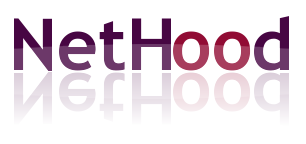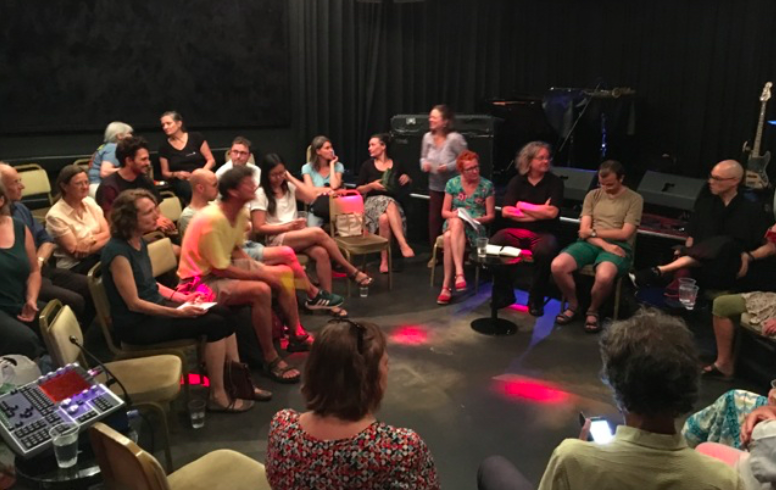
|
about
projects
papers
events
contact
|
ParLa (Participatory Laboratory) is a place-based public engagement methodology that aims to connect people with each other and with places in their neighborhood, through a long-term participatory process. The idea is to create informal groups of diverse actors living in proximity and organize nomadic encounters at different locations, which become part of the process, and include a digital layer for documenting those encounters and creating a common thread between them.
ParLa has been devised during the Horizon 2020 CAPS Project MAZI, using an offline network infrastructure (the MAZI Zone), which is now being replaced by the Convivium platform. ParLa has been experimented as a process in different places of the Kreis 5 neighbourhood (Kraftwerk1, Stadionbrache, EXIL), and as a singular encounter in Berlin, Heraklion, Bucharest, and other localities. Part of this methodology, without the digital component, have been also later implemented in various NetHood’s event series at the L200 space like the “Cafe Lento” Sundays, the “Bring Your Own” Fridays, and more.
ParLa@EXIL
The first event deploying the ParLa methodology took place at EXIL, a local music club in Zurich's Kreis 5 neighborhood, through a roundtable and group discussion by the name ‘From polyphony to harmony’. Its date July 17, 2017, was chosen on the public meeting of the NeNa1 housing cooperative, which is the 17th of each month, in July falling on a Monday, when at EXIL is the ‘Montags’ jazz concert program with Nik Baertsch's bands.
Nik was the event's host, who introduced to the audience the place, and the regular program ‘Montags’. Afterward his experience as a jazz musician and composer was joined in conversation by Andreas Wirz, an architect and project manager of large cooperative projects, together with Gerda Tobler’s accounts on self-harmony and dialogue, and those of writer Sabina Altermatt, linguistics researcher Robert Schikowski, and journalist Fred Frohofer. A diverse audience from the neighborhood, and from other parts of the city including members of the NeNa1 housing cooperative participated in the discussions, to explore the multiple possibilities of either creating, or not, harmonious outcomes of participatory processes that affirm group differences, and value diversity.
A main goal of this neighborhood event was to begin building shared understandings of what collaboration means in the diverse city, as well as to explore what roles the arts and the craftsmanship tradition may play in participatory practices.
